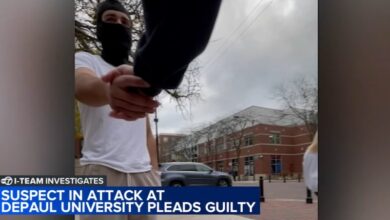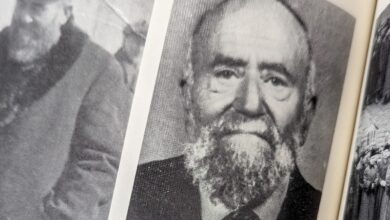Bill awaiting governor’s signature would allow Bible electives in Missouri schools
A bill awaiting Gov. Mike Parson’s signature would allow Missouri public schools to offer elective courses about the Bible.
The law is in line with the U.S. Department of Education which previously issued guidelines stating, “The U.S. Department of Education guidelines reiterate that public schools ‘may not provide religious instruction, but they may teach about religion, including the Bible or other scripture.'”
The legislation put many Democrats in an akward position because it was filed by state Sen. Karla May, a St. Louis Democrat. It allows public schools and public charter schools to offer elective social studies classes including but not limited to the “Hebrew Scriptures, the Old Testament of the Bible” and the “New Testament of the Bible,” Yahoo reported. It passed the Missouri Senate by a unanimous vote in March with just more than an hour left in this year’s session and with little debate, the House voted 108 to 30 to send the bill to Parson.
The teaching about religion as a subject, including the Bible as literature, has been upheld by the U.S. Supreme Court. In addition, the National Education Association has previously voted to support it. NEA Resolution E-7 states, “The National Education Association believes that educational materials should accurately portray the influence of religion in our nation and throughout the world.”
In addition, the National Council for the Social Studies Curriculum Standards declares: “Knowledge about religions is not only a characteristic of an educated person but is absolutely necessary for understanding and living in a world of diversity. Knowledge of religious differences and the role of religion in the contemporary world can help promote understanding and alleviate prejudice.”
“It’s one of the greatest history books that I’ve ever read,” May said “I wanted other people who are, you know, receiving faith to see it in a different way. You get me? Culturally, language, styles of clothes. How did it impact the living conditions of people? You know, I want it to be not a myth.”
But while the bill received support from both parties this year and didn’t drum up too much controversy, some religious leaders and the American Civil Liberties Union of Missouri say it singles out one religion over others. May pushed back on criticism of the bill, pointing to the provision that classes would not have to be limited to these specific books. She said that because the class is an elective, students would be able to request the course from their schools. The goal of her legislation, she said, is to teach these religious texts from an educational perspective instead of lessons on morality and sin.
Others, including some lawmakers who voted in favor of the legislation, say the bill won’t have a major impact and that schools are already allowed to teach these classes.
“I know that schools can do it anyway,” said state Sen. Lauren Arthur, a Kansas City Democrat and a former middle school teacher. “It doesn’t mandate that schools offer those courses. It just allows that as an option for an elective but that was pretty standard. I’ve not heard anything in support or opposition from my school districts, which I think reaffirms for me that this probably isn’t going to make much of a difference.”
The bill has come under fire from atheist groups and media outlets but they have typically failed to mention it is a common, and legal, practice to teach the Bible as literature and religion as history.
Hundreds of districts across the nation use curriculum and resources from the hose resources have come from the 501(c)(3) nonprofit Bible Literacy Project and have been used in hundreds of public schools in dozens of states.
–Dwight Widaman | Metro Voice








